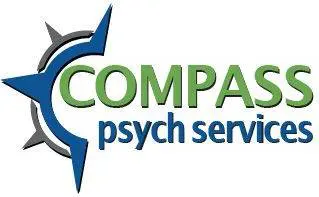When Should an Adult Consider ADHD Testing?
Attention Deficit Hyperactivity Disorder (ADHD) is commonly perceived as a childhood disorder. However, it’s increasingly recognized that many adults carry the symptoms of ADHD into their mature years, often without a formal diagnosis. As awareness grows, adults suspecting they have ADHD may wonder: when is the right time to get tested? This article delves into the circumstances and signs indicating an adult might benefit from an ADHD evaluation by a psychologist.
Persistent Life Challenges
Adults with undiagnosed ADHD often find themselves facing recurring difficulties in various areas of life. These challenges might include:
– Occupational Struggles: Frequently missing deadlines, struggling to organize tasks, or difficulty maintaining attention during meetings can be signs of ADHD. Job-hopping or a pattern of underperformance might also be indicators.
– Relationship Issues: ADHD can affect one’s relationships. Forgetfulness, impulsivity, and difficulty listening can strain interpersonal connections, leading to misunderstandings or conflicts.
– Academic Difficulties: Adults returning to education might notice a continuation of childhood challenges, like difficulty concentrating on lectures, procrastinating, or struggling to complete assignments.
Inconsistent Abilities
One hallmark of ADHD is inconsistency in performance. An adult with ADHD might excel in tasks that they find stimulating or interesting but struggle immensely with tasks they deem mundane or complex. This inconsistency can be puzzling, leading to self-doubt and confusion. For instance, one might wonder, “How can I manage a complex project at work but forget to pay my bills on time?”
Historical Evidence
Often, the clues to adult ADHD lie in childhood. While the condition may not have been recognized or diagnosed during one’s younger years, recalling consistent patterns of inattention, hyperactivity, or impulsivity can be telling. Conversations with family members about one’s childhood behaviors or revisiting old report cards might reveal previously overlooked symptoms.
Emotional and Psychological Symptoms
ADHD isn’t just about distractibility or hyperactivity. Adults with ADHD often experience:
– Low Self-Esteem: Years of perceived failures or struggles can lead to feelings of inadequacy.
– Impulsivity: Making hasty decisions without considering consequences, be it in spending, relationships, or responses.
– Restlessness: An inner feeling of unease or constantly being on the go, as if driven by a motor.
– Mood Swings and Sensitivity: This can manifest as rapid mood changes, a heightened emotional response, or taking criticism very personally.
Self-Recognition in Others
The surge in ADHD awareness means that more personal stories and experiences are being shared in the public domain. Some adults might recognize their symptoms when hearing or reading about others’ ADHD experiences or seeing portrayals in media.
Seeking an Evaluation
If an adult identifies with multiple symptoms or patterns described above, it’s worth considering an evaluation. A psychologist or psychiatrist specializing in ADHD can provide a comprehensive assessment. This usually involves a clinical interview, rating scales, and sometimes cognitive testing. Feedback from family or close friends might also be sought to understand the person’s history better.
ADHD doesn’t vanish with childhood. Many adults unknowingly live with its symptoms, attributing their challenges to personal failures rather than a neurological condition. Recognizing the signs of ADHD and seeking an evaluation can lead to interventions, strategies, and treatments that enhance quality of life, self-understanding, and overall well-being. If you or someone you know suspects they might have ADHD, don’t hesitate to reach out to a healthcare professional. An accurate diagnosis can be the first step towards a more focused and organized life.
